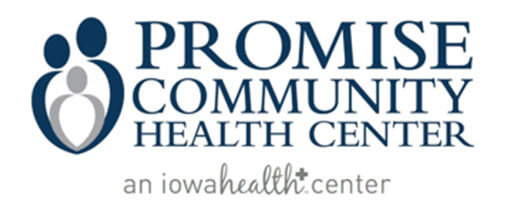
As “Minority Month” comes to an end this April, I reflect back on the strides Promise is taking to provide services to our neighbors from all backgrounds. Today, I celebrate what it means to be a bilingual therapist for Spanish and English-speaking patients. Growing up in a Spanish speaking home, the language I connected with the most was Spanglish. Switching from Spanish to English and English to Spanish as my brain tried to look for the most accurate word when I spoke. Merging words to create new ones was the norm in my household. How powerful it is to be able to express yourself in the language that comes the easiest to you! Unfortunately, not everyone has that privilege. I have seen the disconnect and miscommunications that occur when people seek services in English when all they have is their eight-year-old to interpret for them. At Promise, our bilingual and interpretation services are embedded into every department, even in therapy. Why? Because our patients deserve to heal in their native tongue.


An article, Language and Emotion: Introduction to the Special Issue, by Kristen Lindquist, 2021, looks into past literature about the relationship between language and emotion. In the article, Lindquist explains that language effects more than being able to label our emotions (although labeling emotions alone makes a big impact in therapy). It also impacts how we access behavioral, physiological, and neural connections of emotion and the regulation of these emotions. Identifying, connecting, truly feeling and releasing our emotions is one of the primary goals in therapy – so being able to do all of this in the language you are the most comfortable with is extremely powerful for a patient’s healing. Our Mental Health and Interpreting Services Coordinator, Michelle van Beek, has seen the beauty of mental health services in Spanish in action for four years. Here is a little snippet of her experience interpreting in our mental health department:
How long have you been interpreting for BH therapy sessions?
I started interpreting for mental health sessions in March 2018. It has now been four years since then and I can certainly say that interpreting for therapy sessions is a completely different experience compared to the other types of interpreting I’ve done before.

What does your role as in interpreter look like in a therapy session?
My role during a therapy session is to do such a good job that the patient doesn’t remember that I’m there. I want the communication happening between patient and provider to be as seamless as possible and keep the conversation flowing. While interpreting for therapy, I typically try to position myself in a in a way that allows me to hear and communicate to both parties. I discuss the positioning with the patient before session begins to make sure that our positioning is comfortable for them and to make sure they can hear me OK. As a nationally certified interpreter through the national board of certification for medical interpreters, or NBCMI, I am also held to a code of ethics and confidentiality laws for anything that I interpret. I make sure to communicate this with the patient to reassure them that anything they share during the therapy session will be kept confidential and they do not have to worry about anything they share leaving the room. I make sure to adjust my interpreting technique for therapy since it is a completely different specialized vocabulary that is used during sessions. As the interpreter I have to be extra careful with making sure that I am using a similar tone as the therapist, as well as making sure that I am relaying the specific wording chosen by the mental health professional.

As the mental health coordinator who also interprets for therapy sessions, what response have you seen with offering interpretation services to our Spanish patients? Offering sessions from a bilingual therapist?
When I was interpreting for just one English-speaking provider, our Spanish-speaking patients were receptive, although we did notice some hesitation as well. Typically, after the first therapy session, patients were able to see that having an interpreter in the room wasn’t as bad as they thought. If we could get patients into the first visit, we were usually able to have them return, now having had experienced a therapy session with an interpreter and feeling more comfortable with it. I still interpret for our current part-time English-speaking therapist. We are continually working together to make the therapy experience as close to as if the patient and provider are speaking the same language as possible. I have been interpreting for some therapy patients long-term now and it has been a real privilege to be able to see them grow and heal in therapy with an interpreter.
What response have you seen with offering interpretation services to our Spanish patients? Offering sessions from a bilingual therapist?
Once we hired a bilingual therapist and started offering the option of Spanish mental health services to patients, I could definitely see the relief on their face knowing that they would be able to speak to a therapist in their native language. As the program coordinator I reach out to patients that show interest or are referred by a medical provider. When offering our mental health services, I would mention that they had the option of a Spanish-speaking therapist. I noticed that once I mentioned that they had the option of attending therapy in Spanish, the hesitancy would decrease and the patients were more open to trying therapy. I have patients comment regularly after their bilingual or Spanish sessions that they felt relieved and so comfortable being able to express themselves fully in their native language. This has also opened the door for many families with Spanish-speaking parents and bilingual children to seek family therapy. We are noticing people who have hesitated starting therapy in the past now seeking therapy and even recommending it to their friends due to the experience they were able to have with a Spanish-speaking therapist.
What would you say to those who are thinking about seeking therapy, but aren’t too sure about having an interpreter in the room?
For those who don’t have the option of therapy services in Spanish, or are looking at therapy with an interpreter, I would try to reassure them as much as possible that as an interpreter, our job is to make your experience as comfortable and as smooth as possible. We are always looking for training opportunities to make sure that everything is interpreted and the context is relayed exactly as it was intended. We also get to work with the providers as a team, so we know how to work well with each other and avoid hiccups during the therapy sessions. We take pride in our interpreting work and want to convey your story to the provider as exact as possible. Although it may seem scary at first to have another person in the room, I have noticed that patients are still able to form a connection with their therapist despite the language barrier and session still flows smoothly. Don’t be afraid to reach out to the facilities and inquire about an interpreter for your session. We would be more than happy to help answer any questions before an appointment, during or after, to ensure that your experience during the therapy is of the highest quality.

This article will of course be translated into Spanish in order to reach the widest possible audience. As a mental health therapist, I am aware of the need to provide culturally linguistically appropriate mental health services to Latinx individuals and as a Latina myself, I am so proud to work in a clinic that provides these services in every department. One of the beauties of language is the connection it brings into our relationships; I am honored to see the connection between therapist and patient grow when language barriers are eliminated. I seek to endlessly immerse myself in both languages in my continuing education to grow in those connections and provide the best possible care to our patients.
Promise Community Health Center Mental Health Team
Promise Community Health Center offers a range of mental health services. Our mental health team collaborates with our patients to assess current coping skills, address emotional needs and work through lifelong patterns. These services are available on-site and by Telehealth by our mental health department.
Promise Community Health Center is proud to provide bilingual mental health therapy in northwest Iowa. Our bilingual therapist can provide mental health services in both English and Spanish. Promise also provides our patients with a mental health interpreter who is qualified to interpret into Spanish for Spanish speaking mental health patients. Our goal is to make sure that our patients are able to do mental health therapy in the language they feel most comfortable speaking. We are happy to have bilingual mental health therapists and counselors and a mental health interpreter to provide accessible and affordable bilingual therapy in Northwest Iowa.
What can Promise Community Health Center in Sioux Center mental health therapists help with:
- Developing & exploring effective coping skills
- Addressing emotional needs
- Working through lifelong patterns
- Working through difficult life situations
- Developing better communication skills
- and so much more!
Our mental health therapists and counselors in Sioux Center provide many therapies including:
- Individual Therapy
- Child Therapy
- Adolescent Therapy
- Couples Therapy
- Women’s Issues Therapy
- Online Therapy
- Family Therapy
Our Promise mental health therapists are specialized and trained in many different therapies including:
- Anxiety Therapy
- Trauma Therapy
- A.R.T.- Accelerated Response Therapy
- EMDR- Eye Movement Desensitization and Reprocessing Therapy
- Art Therapy
- DBT- Dialectical Behavior Therapy
- Generational Family Therapy
- Complex Trauma Therapy
- CBT- Cognitive Behavioral Therapy
- Trauma Services Therapy
- Post-Traumatic Stress Disorder Therapy
Our Sioux Center therapists and counselors are offering services to the following in our northwest Iowa communities:
- Children- Ages 8 and older
- Adolescents
- Adults
- Couples
- Families
Some of our mental health therapy patients come from Sioux Center, Rock Valley, Inwood, and Rock Rapids. We also provide mental health therapy and counseling for patients from Boyden, Hull, Sheldon, George, Sibley, and Spencer. Patients needing mental health therapy or counseling also come from Le Mars, Orange City, Alton, Hawarden, and Hudson. Promise is proud to provide mental health therapy and counseling to northwest Iowa.

